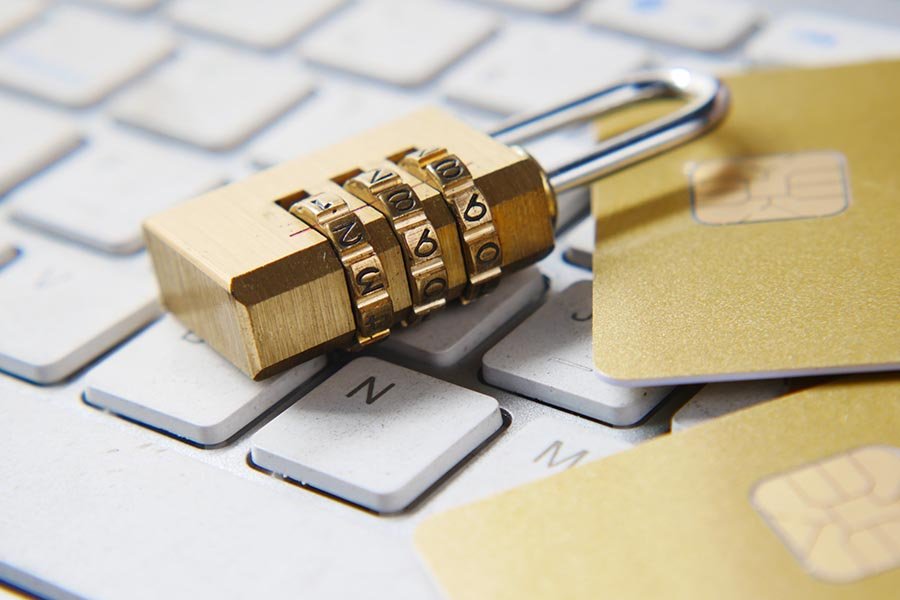Today, cybersecurity and data protection must be one of the main items on the agenda of any individual and private company. Now, when most people work from home and use their computers, there is a greater risk of possible cyberattacks. For example, simply connecting to a public internet network could expose them to the hacking of sensitive information.
If you are still not very clear about what cybersecurity consists of and how the protection of personal data works, here are the main points you should know about how to secure yourself effectively online.
Table of Contents
What is personal data protection?
The protection of personal data includes the group of technological, organizational, and legal measures that seek to protect, in the event of any vulnerability, the user’s personal data.
Any person, according to the law, should have the right to information about by who and for what purpose their data is used, stored, and processed, how long it is stored, and what rights they have if they want to access, delete or change it.
What is cybersecurity?
The term refers to all the actions that protect systems, networks, and programs connected to digital devices against possible cyberattacks that aim to manipulate the sensitive data of individual users or companies. That is why both private persons and businesses need to take into account how they can keep their devices and their online activity in general safe from any attempted computer attacks.
The best tips to protect your data online
When we interact through digital media, we should be aware of the fact that a large amount of our information may be shared immediately with third parties that may be located in various parts of the world. With this in mind, take note of several important tips highlighted below to have a piece of mind about your digital privacy.
Choose strong passwords
A complex password will prevent the theft of your personal data. Ideally, you should choose a password that includes uppercase and lowercase characters, symbols, and numbers. Your password should be difficult to guess, so do not include any date of birth, anniversary, or phone number in it. Also, using the same password for all accounts is not recommended.
For this, you can install a password manager, which is an application that allows you to have a system that automatically and randomly creates complex passwords, saves them, and warns you in case any of them are weak or repeated on various services.
You should not share your usernames and passwords with anyone. One more piece of advice is to change the passwords on all your accounts at least every two months to reduce the possibility of being a victim of computer crimes.
Beware of sharing your personal information online
It is important to set limits on your social networks and configure the privacy of all your accounts so that the information you post on them is only seen by your contacts and not by strangers. Do not publish information related to where your live, your address, or your telephone. You are becoming more vulnerable to data loss, hacker exposure, tracking, and identity theft by posting your private data.
Also, do not accept friend requests from unknown people on social networks as they can be fake profiles that steal data. However, if you want to make closer contact with that unknown person or if you want to share some of your personal details with them, check their identity on PhoneHistory beforehand as a safety precaution.
Provide personal data to and download files only from trusted and recognized sites
Before providing or downloading any information, you should verify that it is not a fake website and that it has the SSL (Secure Sockets Layer) protocol. That is, the web address starts with HTTPS, indicating that the data you share will be transmitted through an encrypted channel.
If you download content from any source, you can execute applications, without even realizing it, that access your computer and stored data, such as passwords, card numbers, and emails, among others.
Review the terms and conditions of a platform before using it
Reading the terms and conditions can take time and be tedious, but it is necessary to know the rights of the provider and what access they will have over your data and its use if you provide information to third parties. Therefore, you should read them before installing or accessing a service or application.
Avoid connecting to unknown Wi-Fi networks
Be careful when connecting to publicly accessible Wi-Fi. Although many establishments, such as cafes, libraries, and airports, among other public places, offer free Wi-Fi, you do not know what security measures they have. Undoubtedly, it can be very tempting to connect to them, but do not use them to access banking services, email, or social networks, since if it is not a secure network, all the information that travels through it will not be protected.
Do not save your personal data on your devices or in your browser
Remember that when you finish browsing the web you should end the session of your email, social networks, etc., and delete the recent data related to the pages you have visited or the files downloaded (cache memory) as well as browsing history because the browser stores all this information.
Do not use the automatic connection to store and save your username and password. Thus, you will decrease the probability that other people will access your personal information.
Use antivirus software
Use antivirus software to secure your computer. Among its functions useful for the system, the following can be distinguished:
- detection and removal of viruses
- ads and spam blocking
- protection against hackers and data thieves
- data and files protection by determining if there is a malicious code inside
- computer performance improvement
- restriction of access to suspicious sites – the antivirus can analyze your internet traffic and block some resources that seem dangerous for the system, etc.
Important note: do not forget to schedule your antivirus programs to update frequently so that they can protect your device from the latest malware.
Conclusion
Today more than ever, cyber-attacks are a real threat to individuals and companies. You need to know if you have a good cybersecurity system and if you are ready to face the dangers of the virtual environment.
We hope these tips will help you safely protect your personal data on the internet.










